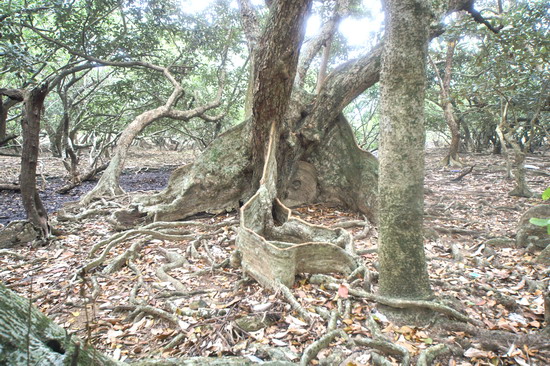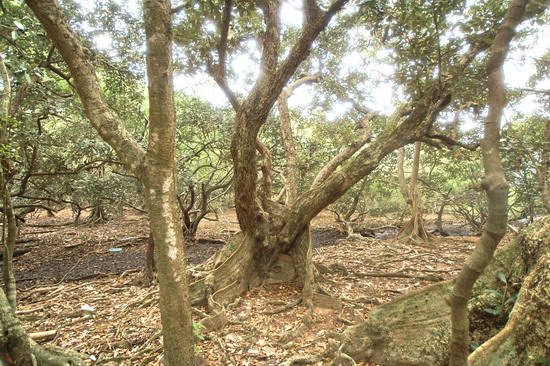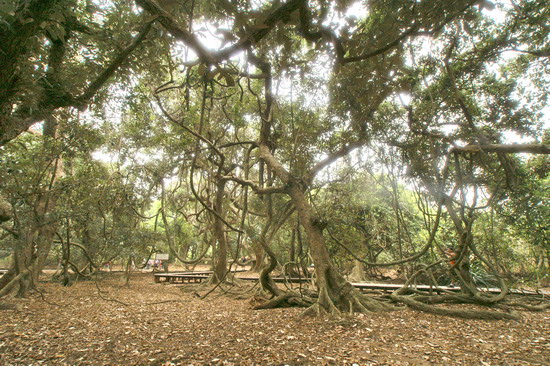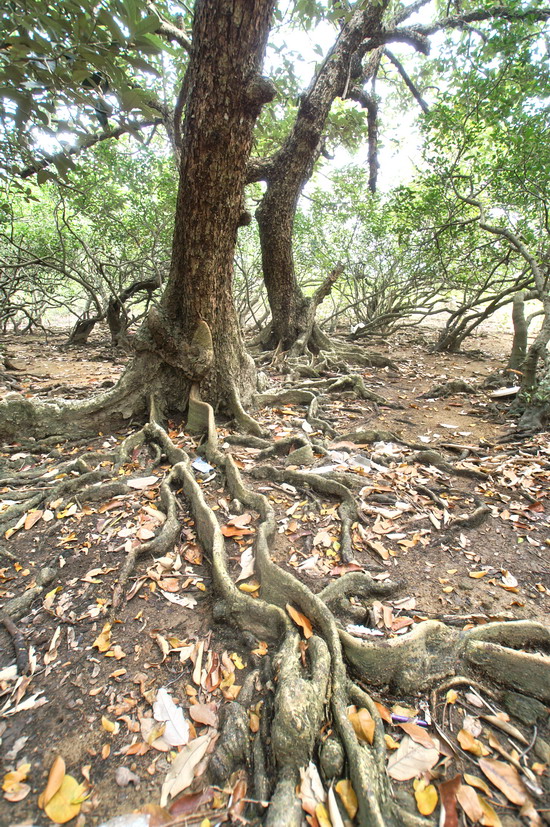|
|
|
情景 銀葉樹林 Scenes - Looking-glass Trees (Heritiera littoralis) |
|
荔枝窩村在海旁有一佔地甚廣的銀葉樹林,是少見單一樹種的優勢群落,大大小小銀葉樹約有過百棵.根據專家評估,樹林有2棵銀葉樹達150年樹齡,看來其他樹木都是它們的後代. 銀葉樹屬於紅樹林的一種,生境在靠岸的一邊.紅樹林的品種都有它適應惡劣環境的本事,銀葉樹也不例外.泥濘土地激發它們有板根支撐樹幹的本性.果實皮厚,中空,有浮水漂洋過海的本領.葉底有鱗片可以反射海水的光源. 這個銀葉樹林並不靠在村旁,不算是風水林,村民卻讓它們平靜成長,算是一個異數. There is a wide stretch of Looking-glass trees (Heritiera littoralis) on the waterfront in Lai Chi Wo village. It is rather uncommon to see a predominant community of solely a single species. There are more than a hundred of them, large and small. According to expert assessment, two of them are over 150 years old. It seems that the others are offspring of these two old trees. Looking-glass tree is a type of mangrove; its habitat is on the side closer to the shore. Mangrove species are capable to adapt to the harsh environment. There』s no exception to Looking-glass tree. Muddy soil fires up its natural support of trunk by buttress roots. Its fruits get tough rinds and they are hollow which allow them to float across oceans. The scales on the underside of leaves reflect the light of sea water. These Looking-glass trees in Lai Chi Wo village are not adjacent to the village, and, therefore, they are not Fung Shui wood. It is quite remarkable that the villagers allow them to grow peacefully. *translated by Mary Chung |
 |
 |
 |
 |
|
作者: Leon Lau, 譯者: Mary Chung facebook群組, s94096507@gmail.com |
| 下一篇 未完的結局 |